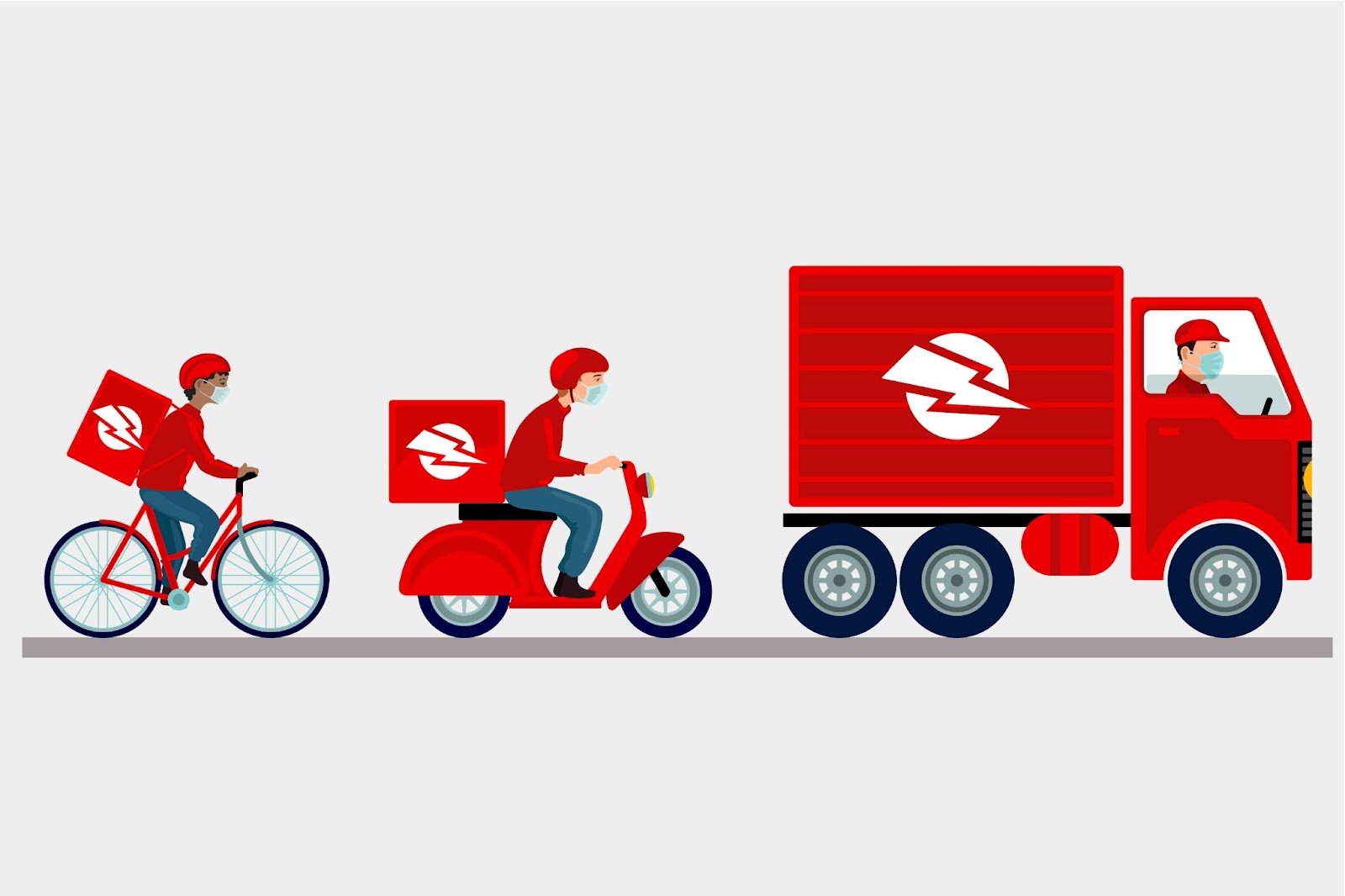Consumers across the globe expect their deliveries to arrive within minutes. The increasing customer expectation of fast delivery initiated a new business concept known as quick commerce which provides rapid hyperlocal service. The main obstacle for quick commerce business model operations is the last mile delivery automation process from fulfillment centers to end customers’ locations.
Artificial Intelligence brings revolutionary changes to quick commerce operations. Companies benefit from advanced technologies which enable them to maximize their logistics systems while decreasing expenses and providing better service to their clients. This blog will examine how AI in quick commerce impacts business while changing the course of quick commerce development.
The Role of AI in Last-Mile Delivery
AI solutions have emerged as fundamental technology because they solve the delivery distribution problems which arise in last-mile logistics. The application of last mile AI can be observed in multiple areas which cover:
- Predictive analytics for real-time route optimization.
- The automation process for sorting items alongside order dispatch operations enables faster order processing.
- The combination of AI-powered chatbots with tracking systems improves customer satisfaction as a result.
- Automatic learning algorithms help businesses forecast customer demand so they can optimize inventory management.
Through AI integration quick commerce companies in India and worldwide meet their delivery targets as well as reduce costs while needing little human assistance.
AI-Powered Innovations Enhancing Last-Mile Delivery
1. Route Optimization & Real-Time Traffic Analysis
Last mile delivery automation faces an important challenge from unpredictable traffic congestion during delivery processes. The real-time traffic data and weather conditions alongside historical delivery trends processed by AI-powered route optimization tools lead to finding the quickest and most effective delivery routes. In India last mile automation software is used by Zepto and Blinkit to streamline its delivery fleets.
2. Autonomous Delivery Vehicles & Drones
AI technology enables last mile AI transformation by developing self-driving delivery systems and drone functions. The automated solution system aims to decrease driver dependency and speed up delivery operations. The latest development of drone deliveries receives widespread experimentation from companies such as Amazon and Google as well as Indian start-ups.
3. Smart Warehousing & Micro-Fulfillment Centers
The success mechanism of quick commerce depends heavily on micro-fulfillment centers which should be situated close to customers. These centers maintain correct stock levels through AI-based predictions of changing customer demand. The Indian quick commerce providers Swiggy Instamart and Dunzo employ AI-controlled platforms which enable them to deliver orders at speed.
4. AI-Based Demand Prediction & Order Batching
AI analytical systems study how customers buy to forecast market needs while optimizing warehouse product placement. The system enhances operational efficiency along with cost-effectiveness and delivery speed because companies can efficiently organize batches for orders. AI in quick commerce creates a system to maintain the product demand which consistently experiences high demand.
5. Customer Experience & AI-Powered Support
AI text bots together with AI voice helps deliver automatic product order reports which combine delivery projection data with refund statements for customers. Intellectual automation provides customers with precise real-time delivery period forecasts. The personalized approach proves fundamental for obtaining customer loyalty due to quick commerce requirements.
Benefits of AI in Last-Mile Delivery
Cost Reduction Through Automation
Operation management that involves manual labor tends to be both slow and prone to multiple mistakes. Companies can minimize human involvement through AI-driven last mile automation software by automatically handling dispatches and order batch processes and developing intelligent route distribution. The integration of these AI-driven measures decreases both operating expenses and delivery failures to create a more economical last-mile delivery system.
Increased Efficiency in Order Fulfillment
The optimization of warehouse operations through artificial intelligence involves both demand prediction and fully automated inventory restocking processes. The quick commerce business feeds high-demand products to customers by using AI systems deployed in micro-fulfillment centers. Faster dispatch capabilities through this process enable businesses to complete order handling at a high speed which enhances overall operational efficiency.
Higher Accuracy in Delivery Timelines
The main obstacle to quick commerce operations arises from delivering promised rapid delivery services. AI predictive analytics systems enable businesses to deliver precise delivery estimation times by processing real-time and environmental factors including traffic and weather conditions and current order status. The high level of precision enables customers to trust delivery time and decreases the total number of failed delivery attempts.
4. Improved Customer Experience & Support
AI improves customer service through its implementation of chatbots and real-time tracking systems as well as voice assistants. Customers obtain immediate updates about their orders together with delivery time forecasts and access AI-powered assistive support for speedy solutions. The brand loyalty among customers increases because of the smooth customer experience in the competitive quick commerce business format.
5. Demand Prediction & Smart Inventory Management
Through analyzing historical purchasing data alongside market trend analysis AI generates accurate predictions for upcoming demand levels. Quick commerce companies in India can keep appropriate inventory at their strategically positioned fulfillment centers because of this capability. The use of AI ensures product availability and achieves fast delivery and nullifies stockout situations.
6. Scalability & Business Growth
Business scalability becomes more efficient through the utilization of AI technology when order volumes grow larger. Automated logistics systems operating simultaneously transport vast numbers of deliveries which keeps last mile delivery automation functioning smoothly. Businesses that integrate AI into their quick commerce operations achieve wider market coverage while maintaining fast services at excellent quality standards.
Conclusion
Last-mile logistics receives a complete transformation through AI in quick commerce as this development transforms delivery operations into faster and intelligent and enhanced efficiency. The quick commerce business model is undergoing transformation through three key technological implementations including route optimization together with autonomous vehicles and AI-controlled warehousing systems. More quick commerce companies adopting last mile delivery automation in India will drive further innovations which predict the future course of e-commerce. Businesses aiming to lead in this domain must adopt AI-powered logistics systems which guarantee they fulfill rising customer demands for fast and convenient service delivery.
